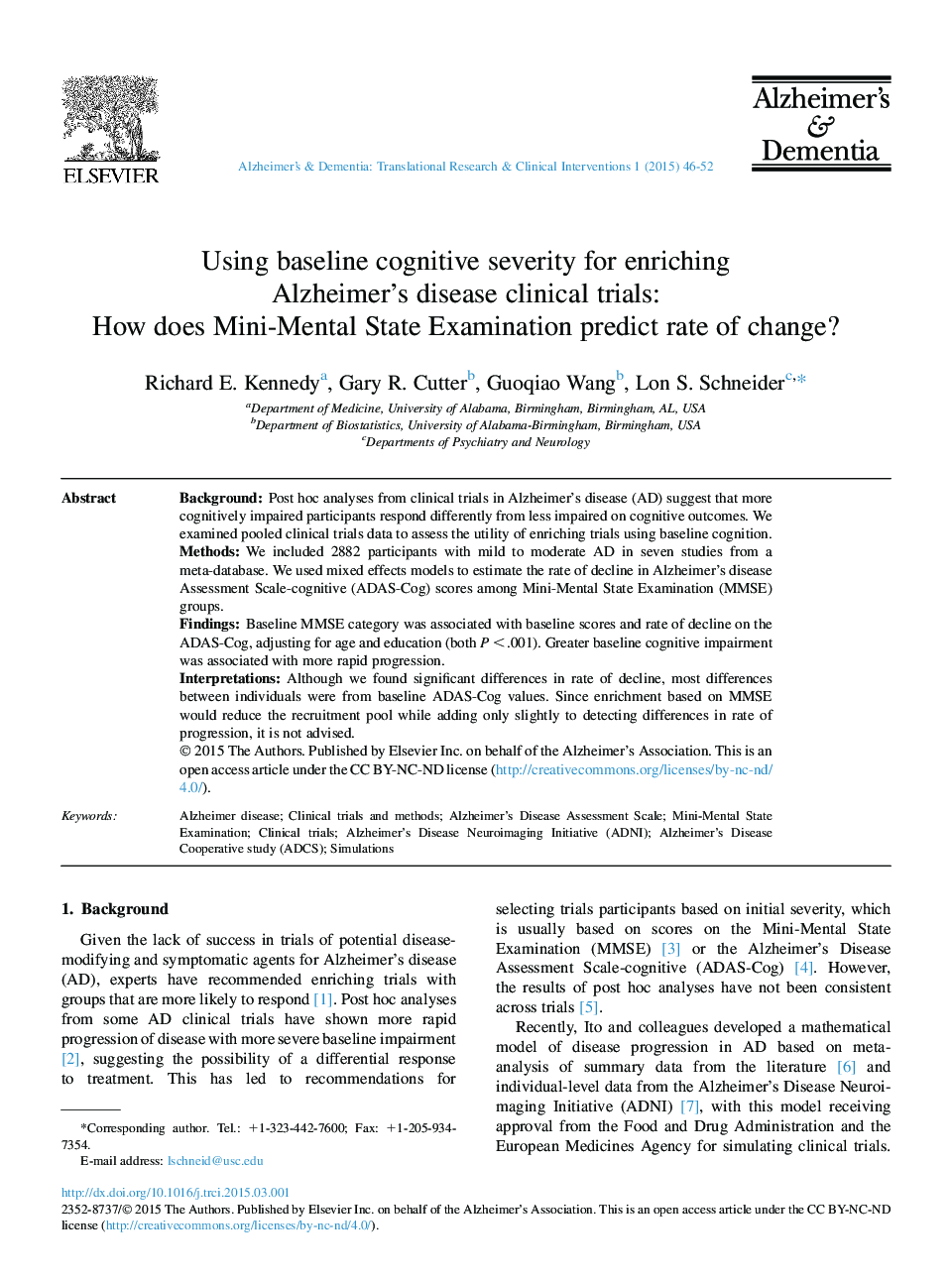| کد مقاله | کد نشریه | سال انتشار | مقاله انگلیسی | نسخه تمام متن |
|---|---|---|---|---|
| 3032105 | 1184001 | 2015 | 7 صفحه PDF | دانلود رایگان |
BackgroundPost hoc analyses from clinical trials in Alzheimer's disease (AD) suggest that more cognitively impaired participants respond differently from less impaired on cognitive outcomes. We examined pooled clinical trials data to assess the utility of enriching trials using baseline cognition.MethodsWe included 2882 participants with mild to moderate AD in seven studies from a meta-database. We used mixed effects models to estimate the rate of decline in Alzheimer's disease Assessment Scale-cognitive (ADAS-Cog) scores among Mini-Mental State Examination (MMSE) groups.FindingsBaseline MMSE category was associated with baseline scores and rate of decline on the ADAS-Cog, adjusting for age and education (both P < .001). Greater baseline cognitive impairment was associated with more rapid progression.InterpretationsAlthough we found significant differences in rate of decline, most differences between individuals were from baseline ADAS-Cog values. Since enrichment based on MMSE would reduce the recruitment pool while adding only slightly to detecting differences in rate of progression, it is not advised.
Journal: Alzheimer's & Dementia: Translational Research & Clinical Interventions - Volume 1, Issue 1, June 2015, Pages 46–52
